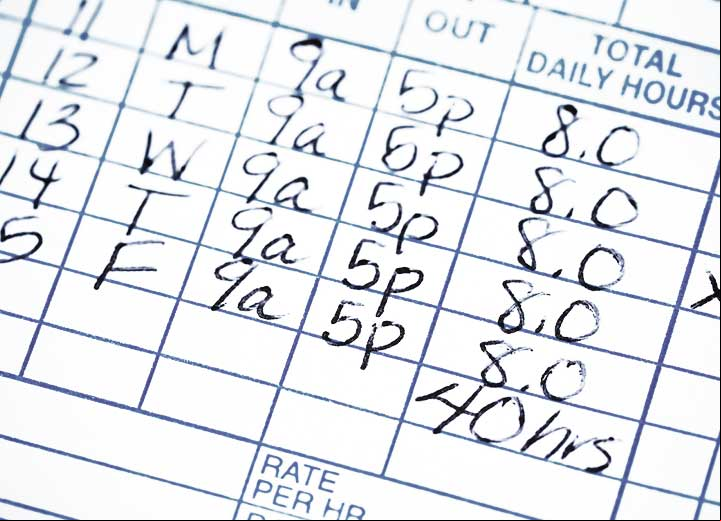
To facilitate and modernize access to information related to all formal professional experiences of workers, the Ministry of Labor launched in late November of 2018 the Digital Employment Record Card, or Digital CTPS, as a free application...

When one speaks of startups, one of the first things that comes to mind is the informality of the work environment compared to that of traditional businesses. Flexible work schedules and stripped-down offices, coupled with the possibility of rapid...

Before the Labor Reform (Law No. 13,467/17), in force as of November 11, 2017, if companies did not grant a full one-hour break for meals and rest, the so-called intra-workday break, they had to pay an entire hour of overtime, even if employees had...

Startups create innovative business models. One example is the shared economy, which emerged from the broadening of the concept of the gig economy[1] (also known as the "freelancer economy"). In it, online platforms serve as a broker between...

Presidential Decree (MP) No. 873/2019, published on March 1, 2019, amended the CLT to prohibit the collection of union dues from any employees who have not given express authorization, individually and in writing to their union, following the case...

Union classification is the means by the which a company defines which union will represent its employees. Currently, only one union represents the employees of one company[1]/professional category (what we call union unity), but this may change....

The head section of article 464 of the Consolidated Labor Laws (CLT) provides that "the payment of salaries shall be accompanied by a receipt, signed by the employee." The sole paragraph of this legal provision provides that "proof of deposit into...

Law No. 13,467/2017, known as the Labor Reform, has been in force for more than a year, but, to date, not all of the amendments it proposed to the Consolidated Labor Laws (CLT) have been reviewed by the Labor Courts. This is the case for the...

The Labor Reform (Law No. 13,467/17) brought in various changes to labor law, especially from the point of view of collective rights. One of the most significant issues was the interest shown by the legislator in promoting collective autonomy,...

Federal Decree No. 9,571/2018 has been drawing the attention of companies by assuming effective legal rules on liability for the chain of production. The decree stipulates the guidelines on human rights to be adopted by Brazilian and multinational...

In August of this year, the Federal Supreme Court (STF) ruled that outsourcing is lawful in all stages of the production process, be it ancillary or main activities, in deciding Argument of Breach of a Basic Precept (ADPF) No. 324. As a practical...

The need to create specific breastfeeding areas for employees of shops is a matter that has not yet been settled among the s of the Superior Labor Court (TST). In September, over a few weeks, the court handed down judgments in diametrically...

The Superior Labor Court (TST) granted relief to an appeal filed by a company seeking to recognize as valid a collective bargaining agreement that authorized the use of an alternative system for controlling work hours, in which the employee only...

One of the greatest labor challenges facing the Brazilian business community today is compliance with the minimum quotas for the hiring of apprentices and people with disabilities or rehabilitated workers. Under Brazilian law, to meet their minimum...

Law No. 13,467/17 (the Labor Reform) inserted article 652, f, into the Consolidated Labor Laws (CLT), thus expanding the jurisdiction of the Labor Courts to decide on the ratification of extrajudicial settlements. However, even with this change,...

Every labor relationship is based on mutual trust between the parties. Every day, new products are created, new production techniques are implemented, and new markets are pursued. Employees have access to information that, if disclosed, may...

Decree No. 9,507/18, published on September 24, extends the possibility of hiring outsourced workers by the direct federal public istration and public companies and companies controlled by the Federal Government. After the judgment on the...

Ordinance No. 1,287/2017, published in December by the Ministry of Labor, prohibits the granting of a "negative service fee" under the Worker's Food Program (PAT). This fee represents a discount granted by meal and food card operators as a way to...

The Federal Supreme Court (STF) recognized by a majority of votes (7 to 4)[1] the lawfulness of outsourcing companies’ core business activity. The decision by the STF was handed down with recognized general repercussion in Allegation Breach...

Article 507-A of the Consolidated Labor Laws (CLT), included by the Labor Reform (Law No. 13,467/2017), stipulated that, for employees whose remuneration exceeds twice the ceiling of the General Social Security Regime (RGPS), it will be possible to...